by Paul Mann
Peter Hook (known as “Hooky” by friends and fans alike) may be one of the most fascinating figures in modern electronic music. He created a new music sound born out of punk rock roots, in a working class neighborhood of Manchester in the mid 1970’s. He was a founding member of the pivotal rock group Joy Division. His unique signature bass sound, invented out of economic necessity, became an intricate part of dance club music, in the early 1980’s. As Joy Division morphed into New Order, after the untimely passing of iconic singer Ian Curtis, his music became part of mainstream pop culture. But maybe, even more importantly, that sound led to a whole new type of electronic dance music, that evolved into today’s world of massive EDM pop culture.
Since leaving New Order behind in 2007, “Hooky” has been more productive than ever. He has written books about his days as the manager of legendary Manchester nightclubs, and recently published a fascinating and witty account of his experiences with Joy Division entitled “Unknown Pleasures: Inside Joy Division”. The master musician has even become a professor, of late, launching a Masters Degree Program at the University of Central Lancashire.
Music continues to be “Hooky’s” ultimate passion, however, and he continues to play with his own group “The Light”. The band played a fascinating concert tour in 2011, stopping at the historic Fonda Theater in Hollywood (photos here). During that show, the band paid homage to the memory of Ian Curtis, with a riveting rendition of both of Joy Division’s original albums. Perry Farrell and Moby joined in as guest vocalists in a fitting tribute to the enigmatic Curtis. Peter Hook and The Light are now poised to begin their latest tour, with another stop at the Fonda Theater on Saturday September 21st. This time the band will be playing New Order’s original classic albums, “Movement” and “Power Corruption and Lies”, in their entirety. “Hooky” was gracious enough to take time out of his relentless schedule to answer an onslaught of questions that I had regarding his prodigious career. I found his answers to be some of the most fascinating, and forthright, that I have ever elicited from an interview.
(Paul Mann photo)
Paul Mann: You grew up in a working class neighborhood of Manchester and came of age at a time of severe economic recession in that factory region of England. How did you come to decide to be a musician and form a band with your mates that would ultimately become Joy Division? Was it really inspired by a nearly empty show that you saw by the Sex Pistols?
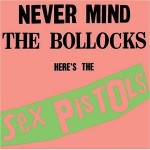
Peter Hook: Yes! Absolutely that… Barney [Bernard Sumner] and myself walked into that Sex Pistols gig in Manchester as regular working class blokes but we left as musicians. We’d seen that gig, which to us was just one of those big moments in history, probably the most punk thing we’d ever seen, and left the building that night having decided that we were going to form a band, even though neither of us could play any instruments! Barney had a guitar that was given to him as a gift from his parents but he wasn’t very good on it at that point, or rather he hadn’t given it much thought to start learning it properly. But it was simply because he had a guitar that I went out and bought a bass. I got my first bass for £35 which was a lot of money back then ha ha, it didn’t have a case so the guy gave me a plastic bin liner and I took it home in that! The rest as they say is history…
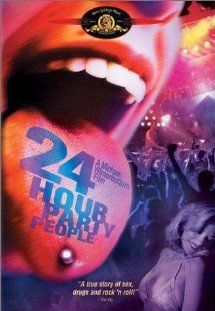
PM: The movie “24 Hour Party People” became a sort of Indy film cult classic in the United States well after it was made. For many people in this country this has given them their vision of “Joy Division”. What did you think of the film? Was it accurate or mostly myth building? How important really was Tony Wilson to the birth of Joy Division?
PH: I like 24 Hour Party People, it’s almost like a Factory inspired Carry On film, Carry On Up the Factory I suppose! Just in the sense that it is light hearted and a little bit tongue in cheek as well as being very funny. Steve Coogan is a very funny actor and portrayed Tony brilliantly, that was some excellent casting in my eyes. As a whole it is mostly accurate however there are certain fabrications shall we say… but as Tony used to say himself “never let the facts get in the way of a good story”… It is a very different film to “Control” which is definitely a lot more serious and in turn a lot more accurate but that is probably because Anton Corbijn the director knows us all very well and so knows how to portray us the best way. Tony Wilson was indeed crucial to Joy Division, he believed in us, he backed us, he signed us… Without him it would not have happened. We will all be forever indebted to him.
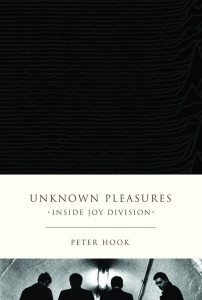
PM: Your recent book “Unknown Pleasures”, which was the title of the first album by Joy Division, is a fascinating and humorous look at the early days of your exploits. I won’t spoil any of the anecdotes. There was, however, a particularly humorous portion dedicated in true rock and roll rebel fashion to a gag you played on the Buzzcocks, who were your contemporaries. It seemed like you had a lot of fun in those days. What was your motivation to write this book? Where you really a suspect in the famous “Yorkshire Ripper” case?
PH: Yes that tour with the Buzzcocks was full of all kinds of jokes and japery… We had a really good laugh. That was a crucial tour for us because it exposed our music to lots more people and the fact that we were the support band on the tour made us really want to put on a great show simply to try and upstage them! And to hear people say that we did was music to our ears. It gave us a lot more confidence as seen by the tricks we went on to play on them. Touring at that age is just a joy, I have very fond memories. And yes, Steve [Morris] & I were both questioned in connection with the Yorkshire Ripper case as our movements on our tour corresponded with the suspected movements of the Ripper! So they dragged us in for questioning, it was ridiculous!
PM: Also from the book, it seemed that Joy Division developed their unique sound partly out of economic necessity. At the time none of you had any formal music training and you had to use inferior instruments that you could afford. You also had to record in primitive conditions which also influenced the sound. Do you think if the band members had grown up in London and gone to music school that you still would have been able to achieve such a unique sound?
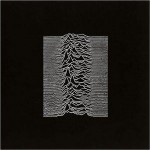
PH: I think things would have turned out very differently yes. Personally I cannot imagine doing it anywhere other than Manchester. If we’d all been down in London then who knows maybe we would never even have met each other! The music school aspect is an interesting one really as to me part of the fun was starting out rubbish and then realising that you were getting better and better… If we’d gone to music school and started out as masters of our instruments then I just don’t really see the fun in that. We were self taught from day one and had a lot of fun just getting to grips with our respective instruments. I started playing higher basslines because my amp was so bad that I could only hear myself when I played high. Coincidentally, Ian really like the sound of it and of course that style of playing then morphed into great songs such as She’s Lost Control, Insight… and many others. I wouldn’t change anything for the world because it all combined to make me who I am today and to give me the career that I have had.
PM: I first became aware of Joy Division while working as a VJ and lighting tech in a Santa Barbara nightclub called Zelo around 1985. Like most Americans at the time we first heard the band as dance music in the clubs. Alternative music rarely got radio airplay in the US for most of the decade. It seems in my mind what set apart the music of Joy Division and made it so unique was its trance-like danceable rhythms. The punk music that came before did not translate well to nightclubs and you were one of the first groups to bring an electronic beat to the dance floor. Did you sense this phenomenon when you were creating the music? How involved were you in the club scene? How much day to day managing of The Hacienda in Manchester did you actually have to do? What was that scene like at it’s peak? Did the Ibiza scene come out of Manchester or did it evolve simultaneously? Did you spend much time in Spain? Have you ever met Martin Gore? He has been a long-time resident of Santa Barbara. Depeche Mode has recorded their last several albums here. It seems that they may owe some of their huge success to Joy Division. Do you have any thoughts on their band?
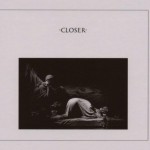
PH: A lot of questions hidden in that one! OK let’s see… In terms of that rock/electronic crossover, that was happening towards the end of Joy Division. Closer, our second album, has a lot more keyboards on it and is a bit more electronic overall – songs like Isolation and Heart and Soul, we were veering towards a more electronic sound quite naturally I think. It’s great to be able to look back and be proud of the punk rock songs we first made yet also think wow we’ve created some great dance tracks… We obviously became very involved in the club scene with The Hacienda. We had been inspired by the clubs we had been to in New York in the early 1980s and came back from there thinking we had to bring that to Manchester. Also, the rave culture of Ibiza helped us to push the acid house movement with The Hacienda at the forefront. I was very involved in the club, I even did the door once! And was also known to roadie for other bands now and again when we had live shows on. At its peak, that era was absolutely amazing, just lots and lots of people every night discovering new music and having a great time… I had not spent much time in Spain at that time but New Order did record Technique in Ibiza which was a very special time. I love Spain, always have and always will, I go there every summer these days. I’ve met Martin Gore a couple of times, yes, Depeche Mode are a great band and it’s great to see them still out there doing very well.
PM: Your book reveals much about the legendary Ian Curtis (Lead singer of Joy Division), as does the “24 Hour Power People” movie, the subsequent film “Control”, and Curtis’ widow Deborah’s autobiography. Ian seemed to have much in common with Jim Morrison of “The Doors”, in that he seemed to suffer on a different plane than others around him and that his artistic undertakings left him vulnerable in the real world. If you had your choice how would you most like Ian to be remembered in the music world?
PH: Well we are fortunate in that Ian’s legacy will live on forever and ever through his music and his words. Those great songs that he wrote will ensure that he is never forgotten and I think that is the best thing anyone can ask for really. He will be remembered as a genius but also sadly as a tortured soul. I will always miss him.
PM: I remember when you came to Santa Barbara to play a show at the Santa Barbara Bowl in 1989 with New Order. It was an exciting show filled with fresh dance hits of the time. What I am a little more fuzzy on is my memory of which two band members came to the Zelo nightclub for an after party in the DJ booth. I have several related questions. How did New Order evolve from the demise of Joy Division? Did you imagine the group would be so successful worldwide? What was the period like in the 80’s? Do you remember much of it like your show in Santa Barbara?
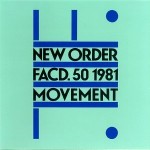
PH: Well when Ian passed away we all decided that we could not carry on as Joy Division. We reconvened after a few days at our rehearsal space and just started again from scratch. I remember that I had written the bassline to “Dreams Never End” in the few days after Ian’s death and I brought that riff into practise and of course that went on to become the first song on New Order’s first album. We just launched ourselves into New Order and carried on making the music that felt most natural to us which at the time happened to be involving a lot more electronic styles and influences. We recruited a full time keyboard player in Gillian [Gilbert] to accommodate this. We had no idea of anything that was to come in terms of whether we would get anywhere, that’s the last thing that was on our minds to be honest. The 1980s was a special time yet also a very hectic time. However I have some very fond memories as I think that is the period in which we made our best music as New Order without a doubt and we did some great tours. I also had my first two children in ’85 and ’89 so the 1980s will always be special to me. I like to think I have a better memory than Barney so yes I do remember that show! Barney can’t even remember that we were called Warsaw before Joy Division!
PM: I have seen New Order several times since those days, (most
recently at this years Coachella festival), and they also played the Santa Barbara Bowl again this summer. The band has always sounded anemic to me since you left the group. I know that you don’t want to speak badly of your extremely talented former bandmates, but why did you leave the group and what do you think happened to the sound of New Order?
PH: Well the thing with New Order is that by 2006 when we did our last shows Bernard and I simply could not work together anymore. I did not like his attitude towards the band and we differed on our ideas for where the band was heading in the future. It did annoy me that he would not play live and that when he would play live we were forced into playing the same setlist every night… Although I see that he is still doing that today! I do find it funny that now he is out there playing lots of shows again, including last year which was the busiest year for any incarnation of New Order ever, and yet he turns round and accuses me of ‘doing it for the money’… Yet he’s the one turning up to all the massive festivals with that same old greatest hits set! I guess after Bad Lieutenant not taking off he had to get New Order back on the road with or without me in order to cut his losses. In terms of the sound of the band, I guess they would say well it’s easy we’ve just got someone else playing his parts now. But I do find it a bit strange sounding, mainly because their session guy doesn’t even have a 6 string bass? Which is so crucial to the basic sound of some of those songs. Ah well…
PM: In 2010, you did a fascinating mini-tour with your band “The Light”, playing both of Joy Division’s albums in their entirety. I saw the show when it stopped at the historic old Fonda Theater in Hollywood. The partially restored old movie theater dating back to the 1920’s, was the perfect backdrop for what was one of my favorite concerts. You have a great band. I believe your son is also a bass player in the group and you have dueling bass wars on stage. You had Perry Farrell and Moby appear as guest singers. There were old film clips of Ian Curtis played in the background. You even had a DJ hanging from a balcony to add to the mood. How did you come to form “The Light”? What was the inspiration for this very special concert? How did Farrell and Moby come on board for the project? I understand you have recorded with Perry in the past?
PH: The idea of The Light came about in order to celebrate Ian’s life by playing Unknown Pleasures live just once in Manchester as it was the 30th anniversary of his passing. But it sold out very quickly so we added a second night, and then it all just snowballed from there! We have been lucky enough to tour America twice now, the first time with Unknown Pleasures and the second time with Closer. This September will be our third North American tour when we come over to play Movement and Power Corruption & Lies. I love the Fonda Theatre and am really looking forward to playing there again on this tour. My son is in the band yes and also plays bass as I find it hard to sing and play all the time, then when I am not singing, the two basses really sound huge together. We’ve been lucky enough to be joined by guest singers before and that night last time in LA was brilliant. Perry Farrell is a great friend of mine who got up to sing Isolation, then Moby joined us for Means to an End, Colony and Transmission. Their passion was amazing and it was an honour to have them with us. Me and my son come up with the ideas of who to ask and we have been lucky thus far that everyone has said that yes they would love to join us. Billy Corgan sang for us too in Chicago and we also had the Charlatans singer Tim Burgess sing Ceremony with us at a gig in Japan last year. With regards to Perry, yes I play bass on two tracks on his fantastic Satellite Party album, Wish Upon a Dog Star & Kinky. He is a lovely, lovely man. We are already working on hopefully getting some more guest singers for the upcoming dates.
PM: You are planning another very special tour in September, this time to play the first two “New Order” albums. I believe you are making a stop at the Fonda Theater in Hollywood again. “I can’t wait”. Could you elaborate on this tour, where it will stop and how it came together?
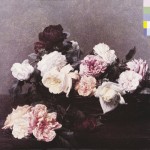
PH: September will be our third North American tour. Each night, we will perform the first two New Order albums Movement and Power Corruption & Lies live alongside all of the relevant singles and b-sides too. We also have something very special planned in terms of the support act for the tour so I hope people arrive early! I am really looking forward to it, we are starting in Boston on September 10th and then going right across America until finishing in Denver on the 28th. From there, we are then heading to Mexico and on to South America with gigs in Argentina, Chile, Brazil and Peru – it should be a fantastic tour! Touring Movement and PC&L just seems to be the next logical step in my current project. We’ve played every single Joy Division song ever written now, so it’s time to dust off some of these old New Order tracks that have just been ignored for way too long.
PM: Finally do you have any advice for aspiring young musicians who might want to follow your lead? Any shout-outs to your extremely loyal fan base? Anything else you would like to add?
PH: I would just advise them to follow their dreams, anything is possible! To the fans I would just like to say thank you so much for all of your support and I look forward to seeing you all in September. Cheers! Hooky.


Discussion
No comments for “Paul Mann Interview with Peter Hook”